Experiencing symptoms from juniper allergies? You’re not alone! These trees can be a major issue for allergy sufferers during the spring and summer months. Don’t worry, I have gathered the necessary information to help you get your symptoms under control.
Keep reading to gain more insight into how juniper allergies work and what steps you can take to manage them effectively.
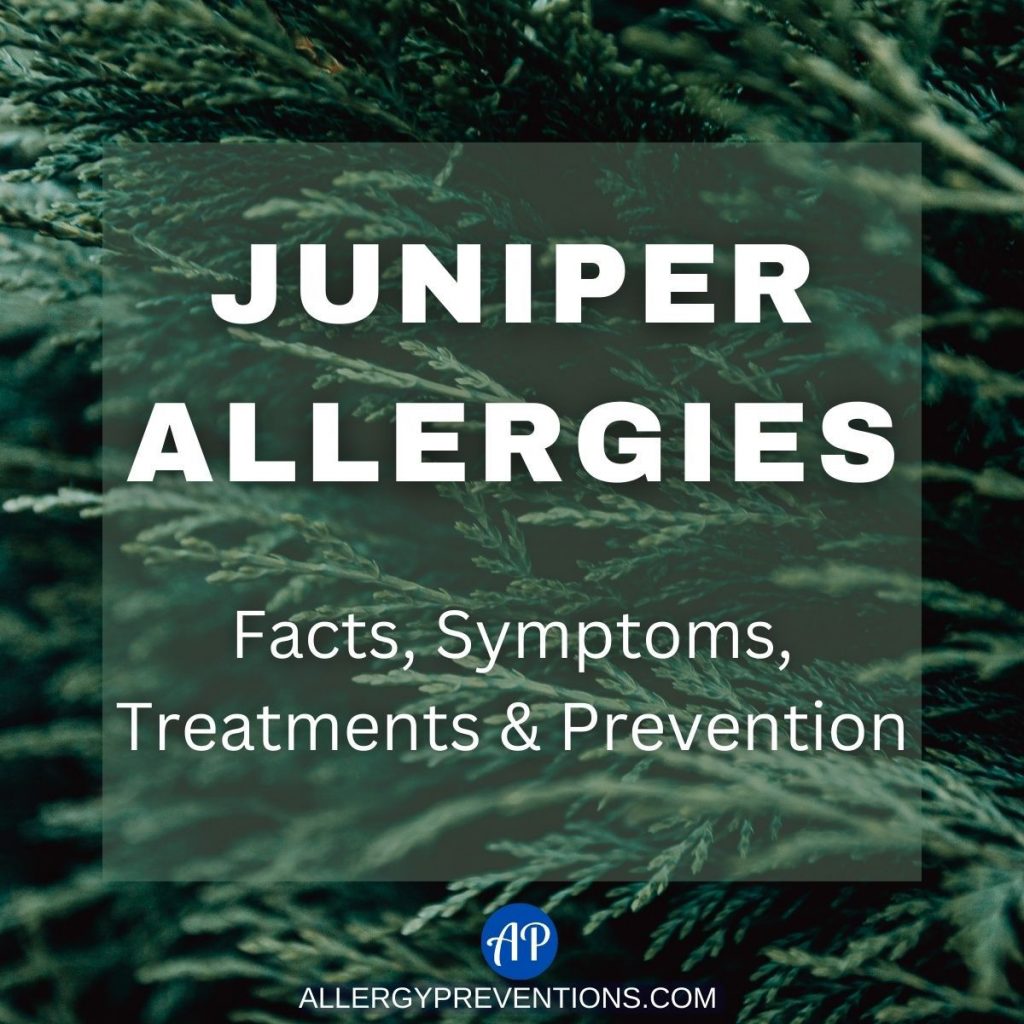
As an Amazon Associate, I may get compensation for qualifying purchases.
Table of Contents
What are juniper allergies?
Juniper allergies are a common type of seasonal allergy that is caused by pollen from a juniper bush or tree. An allergy to juniper causes the typical symptoms of seasonal allergies like watery eyes, sneezing, and hives.
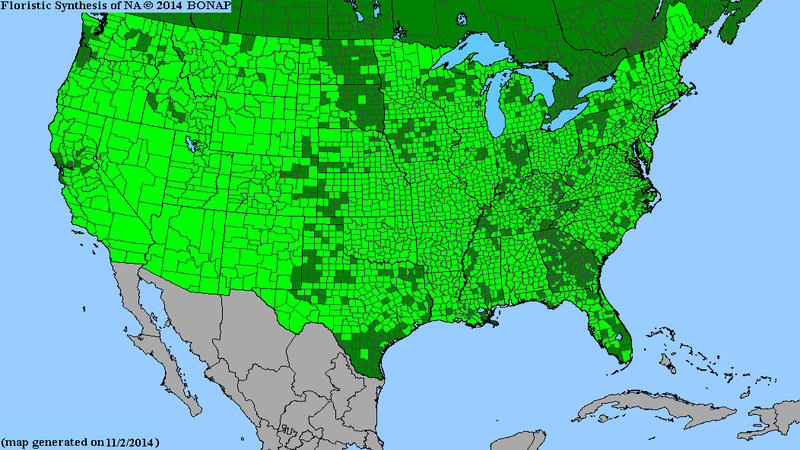
The most common juniper allergies come from the Common Juniper and the Rocky Mountain Juniper. The juniper plant (Juniperus) is found in every state of the contiguous united states, according to the BONAP Plant Atlas map.
What does juniper pollen look like?
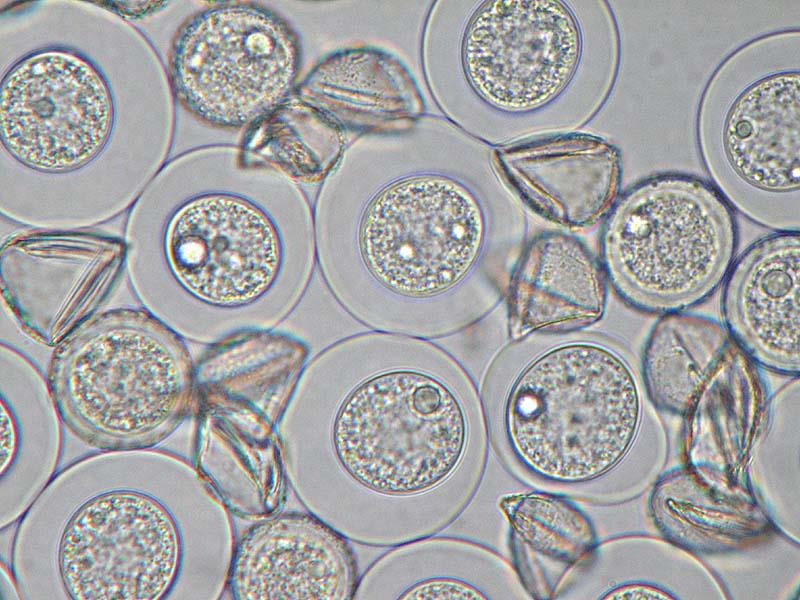
The looks of juniper pollen to the naked eye resemble yellow dust. Juniper pollen under a microscope is round and has a thin outer wall and a thick inner wall. The size of one pollen grain is about 20 – 30 micrometers.
How to know if you are allergic to juniper

Knowing if you are allergic to juniper can be a tricky thing. The two ways to determine if you are allergic to juniper are to self-monitor your allergies around juniper plants and to get allergy tested.
Self-monitor

You may be able to find out if you are allergic to juniper by self-monitoring. You may want to keep a journal and document when you are having an allergy flare-up and see if there are any relations to your outdoor activities, time of year, or time of day.
There are some disadvantages to self-monitoring that you may run into. This process can be time-consuming and you will not get any specific allergy information (what exactly you are allergic to). The fastest way to know if you are allergic to juniper is allergy testing.
Allergy testing
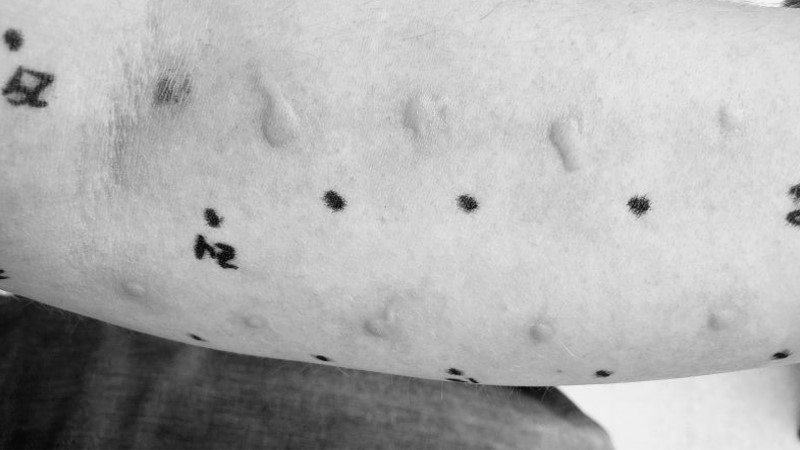
Allergy testing by an allergist will be the most accurate way to know if you have an allergy to rocky mountain juniper or common juniper trees. The test that is performed most often is the skin prick test.
This test will place a small amount of the allergen onto a prick or scratch on your skin, and see how your body reacts. The scratch test is the most accurate, but blood tests are also an option.
Juniper pollen allergy season
The allergy season for juniper typically runs through the spring and early summer, usually beginning in April and lasting until mid-June. Depending on the climate you live in, the season could start earlier and last longer.
What time of day is juniper pollen highest?

Juniper pollen levels are at their highest in the morning and early evening. When the sun shines on the trees and warms the air, the tree releases the pollen so it can successfully become airborne and spread to other trees for reproduction.
Windy days play a large role in juniper pollen levels in the air. Since the pollen spreads through the air, the windier the day, the more likely your allergies will be worse.
Juniper allergy symptoms
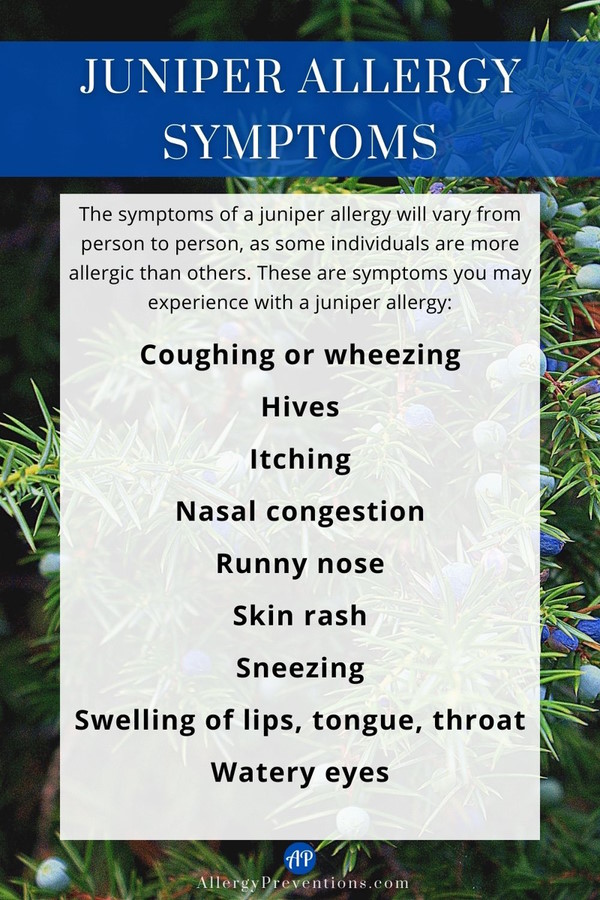
The symptoms of a juniper allergy will vary from person to person, as some individuals are more allergic than others. These are symptoms you may experience with a juniper allergy:
- Coughing or wheezing
- Hives
- Itching
- Nasal congestion
- Runny nose
- Skin rash
- Sneezing
- Swelling of lips, tongue, throat
- Watery eyes
Depending on the severity of the nasal congestion, you may also experience loss of taste from a juniper allergy. In some cases, a severe allergic reaction may require immediate medical intervention including the administration of epinephrine (EPIPEN®) to treat life-threatening reactions.
Juniper Allergy Rash
From my research, a rash caused by coming in contact with juniper trees is one of the most common symptoms. If you have developed a rash from exposure to juniper, make sure you know how to get rid of a juniper rash.
Juniper allergy treatment

If you suffer from a juniper allergy, understand that you are not alone and that there are proactive steps you can take to help treat and manage your symptoms. Talk with your doctor to develop the best treatment plan for your individual needs.
Medications
Medications can be extremely effective in helping to relieve the symptoms of allergies. Many different types of medications are available, depending on the severity of the allergies a person may have.
Antihistamines

Antihistamines are effective in relieving juniper tree pollen allergy symptoms. The medications work by binding to histamine receptors in the body and preventing them from being activated by allergens like juniper pollen. Reducing the histamine in the body reduces inflammation and irritation associated with an allergic reaction.
Allergy eye drops
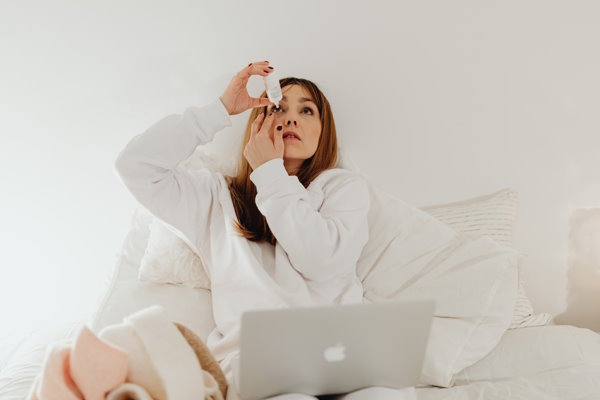
Allergy eye drops can help with allergy symptoms. They can reduce redness and itching in the eyes that can come from allergies. To be considered “allergy eye drops” the drops usually contain an antihistamine.
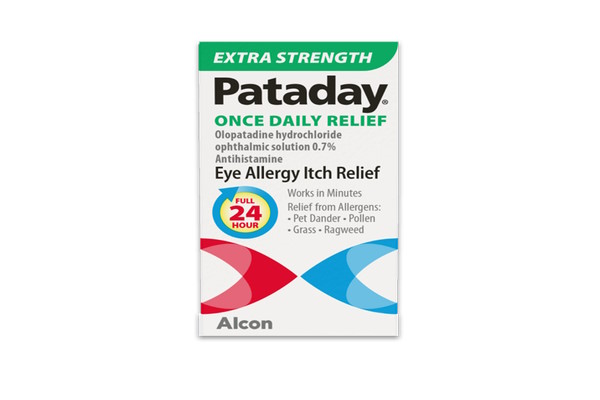
The best allergy eye drops that I use are the Pataday® eye drops. I used to get them prescribed to me because of my severely itchy and watery eyes. These cleared those symptoms right up! What is even better, is they are now available OTC, so I just buy them on Amazon when I need a “refill”.
Nasal sprays
Allergy nasal sprays help stop your nose from sneezing and itching. They work by making your body not react to things that bother it, like tree pollen. They can work quickly to give you relief from allergies and last up to 12 hours.
Decongestants

Decongestants are a type of medication used to help relieve nasal and sinus congestion caused by allergies. These medications work by narrowing the blood vessels in your nose, which helps reduce inflammation and swelling that can block airflow.
These medications can be taken orally or as a nasal spray, depending on what best suits your needs.
They offer quick relief from juniper bush or tree allergy symptoms such as stuffy noses, sneezing, and sinus pressure. However, it is important to talk to a doctor before using decongestants since they may not be suitable for everyone.
Allergy shots
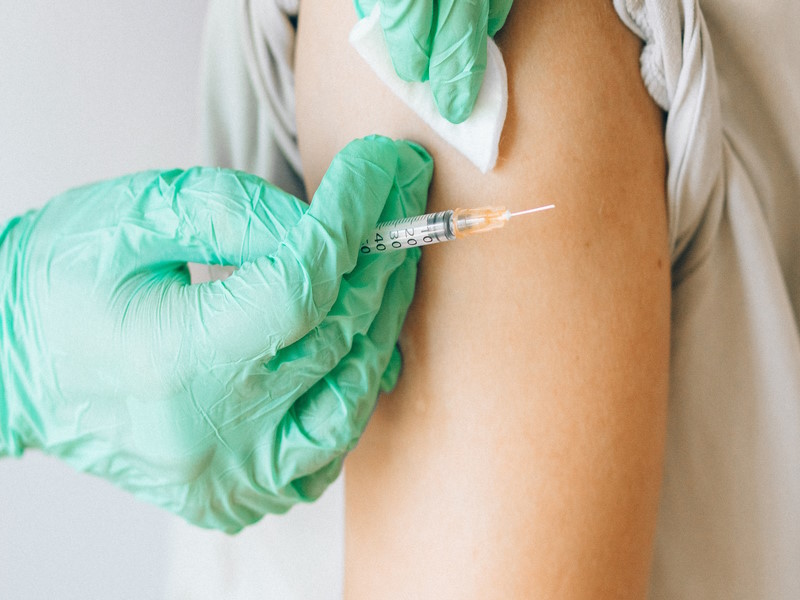
Allergy shots or allergy immunotherapy can help with allergy symptoms, but it takes time and results may vary. The shots work by introducing the allergen to your body in small doses, with the hope that your immune system will learn that the allergen is not a threat.
Immunotherapy can take years to fully relieve allergy symptoms. Some individuals do not see significant results from allergy shots.
I have been getting allergy shots and I do notice a difference, and I have been able to stop some of my allergy medications. Allergy shots are something that needs to be discussed with your provider if you are interested.
Natural juniper allergy remedies

There are a few natural remedies to try with the treatment of juniper allergies. Natural remedies are a great start to any allergy treatments as they usually have fewer side effects.
Nasal irrigation
Nasal irrigation can help reduce the symptoms of allergies. It involves spraying a mixture of salt and water up into your nose to wash away the allergens that are causing your symptoms. This is a natural approach to clearing juniper tree pollen from your sinuses.
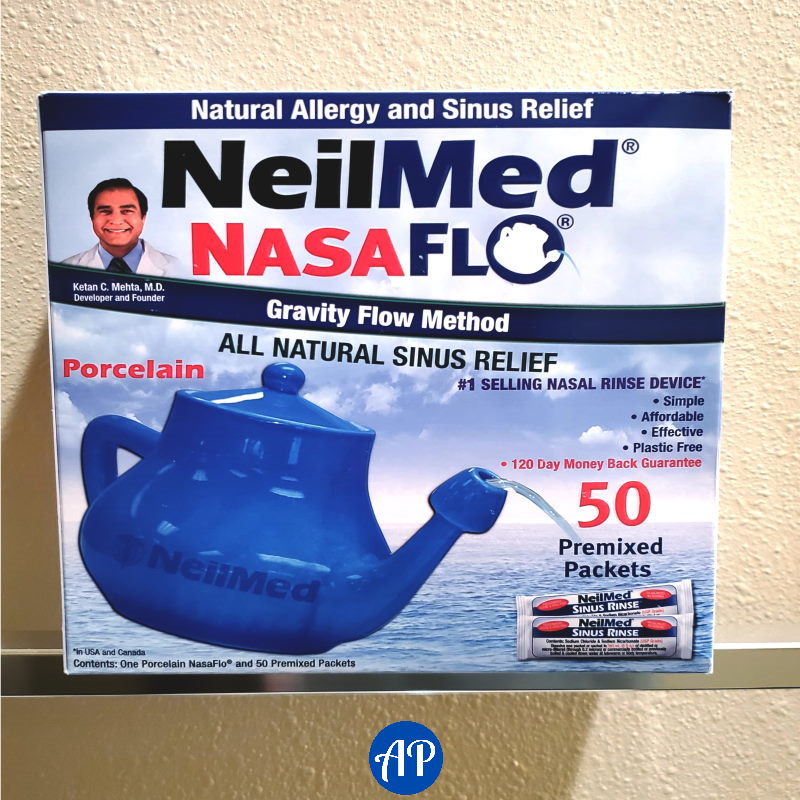
My favorite nasal irrigation device is the Neti Pot. It is cheap, easy to use, and you can use it often. Pouring saline into your nose is not for everyone, but if you can handle it, it is well worth a shot! Find it on Amazon.
Natural antihistamines
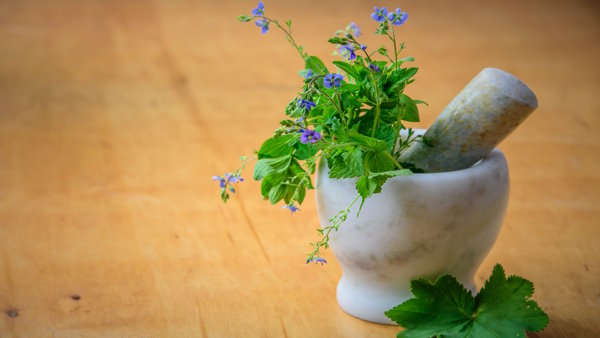
Natural antihistamines can help reduce and treat allergies. These antihistamines come from sources such as plants and foods that contain compounds known to relieve allergy symptoms. Here is a list of natural antihistamines for allergies:
- Aloe Vera
- Bromelain
- Butterbur
- Garlic
- Ginger
- Green tea
- Heart-leaved moonseed (Tinospora cordifolia)
- Licorice root (anti-inflammatory)
- Neem Tree (Azadirachta indica)
- Nettle
- Quercetin
- Turmeric
It is important to note that the term “natural” does not mean safe to consume. Natural products can interact with other health conditions and medications. You should always discuss your health treatment options with your doctor first.
Natural nasal sprays
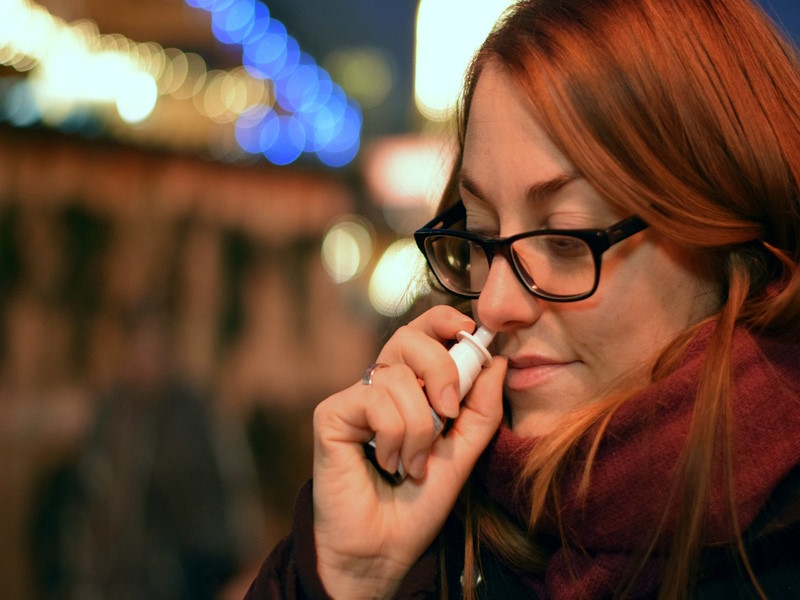
Natural nasal sprays usually contain ingredients such as saline, which helps to flush out allergens and bacteria that can cause congestion and other sinus issues. Nasal sprays are a safer alternative to traditional medications since they do not contain any harsh chemicals that can cause adverse side effects.
They are also much gentler than traditional (OTC and prescription) nasal sprays, so they won’t irritate your nose or cause any burning or stinging sensations.
Plus, natural nasal sprays are often much more affordable than other sinus medications, making them a great option for those on a budget.
Preventing juniper allergies
Avoiding juniper pollen is the best way to prevent allergic reactions to juniper, but avoidance is not always possible. Take these allergy prevention steps to manage your exposure and lower the likelihood of an allergic reaction.
Keep windows closed
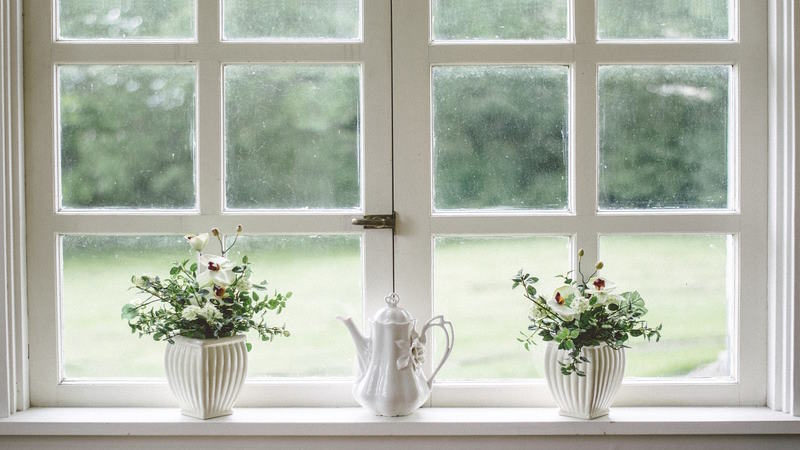
Keep your windows closed during peak juniper pollen season. Pollen travels through the wind, so an open window will bring the allergens right into your home. Fresh air in the home is important, so if you do open the windows, it is ideal to wait until a rainy day.
Wear protective clothing

Protective clothing such as a hat, glasses, and a face mask, can be a great way to protect against pollen allergens when you are outdoors. Clothing forms a physical barrier between you and the allergen.
Change your clothes

Did you know that changing your clothes could help reduce those bothersome allergens? That’s right, the simple act of changing your clothes and removing your shoes after being outdoors can drastically reduce the allergen levels in your home.
By removing your outer layer of clothing and washing it regularly, you can remove most of the pollen that you have collected by being outside.
Reduce outdoor time
Reducing your time outside can be a great way to reduce symptoms and keep your allergies in check. Pollen is most prevalent during the day, so avoiding outdoor activities when pollen counts are highest can make a big difference.
Stay indoors during peak allergy times and windy days
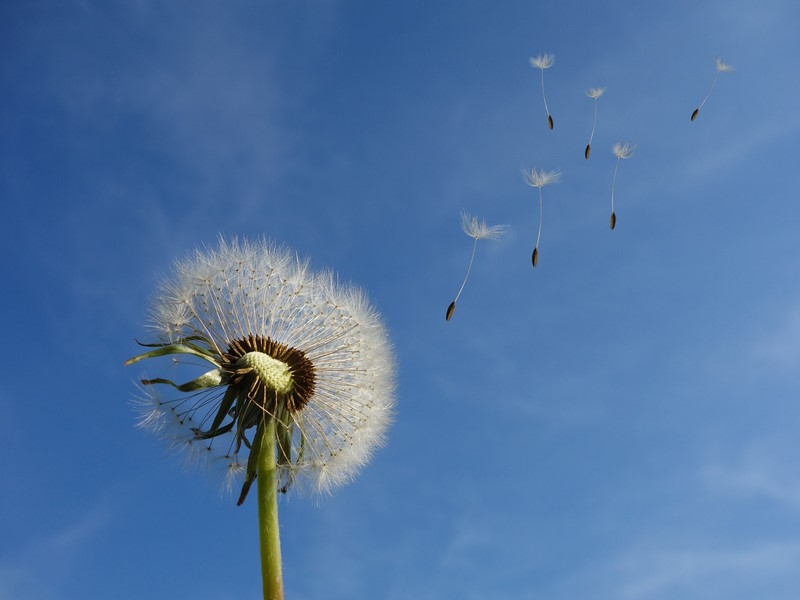
For people with pollen allergies, windy days can be especially difficult. The wind picks up allergens and carries them through the air, causing sneezing fits, watery eyes, and other allergy symptoms. Staying indoors during these times can help reduce exposure to airborne allergens and give your body a break from the constant onslaught of irritants.
Take a shower
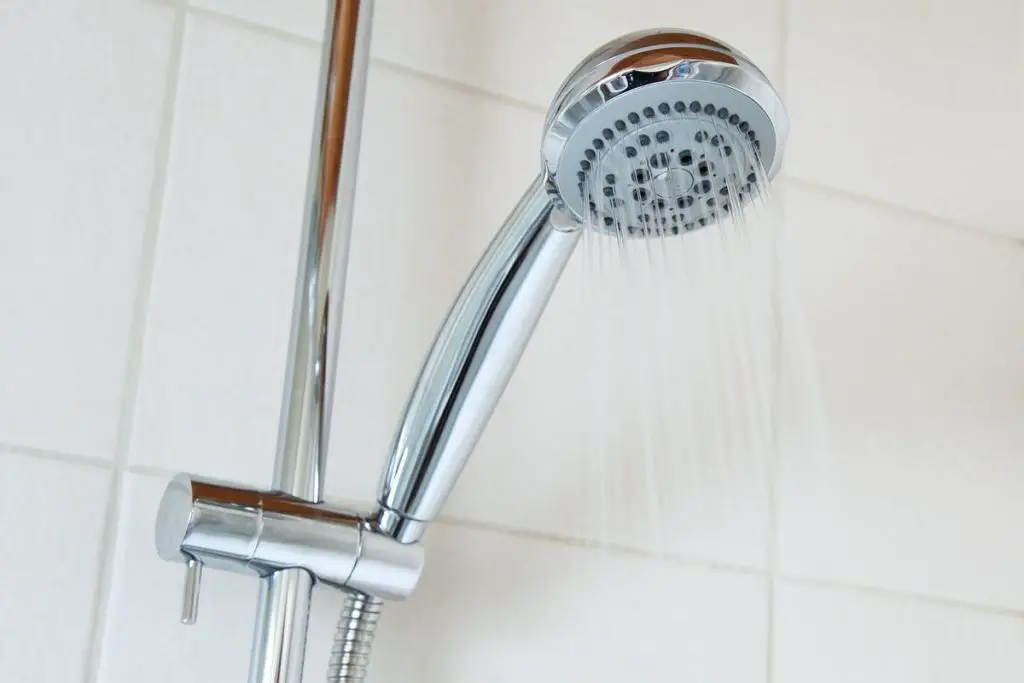
Taking a shower can be one of the best ways to reduce exposure to allergens and relieve allergy symptoms. The water helps to remove irritants, such as dust, pollen, mold spores, pet dander, and other pollutants from the air that can trigger allergies.
During a shower, steam is produced which helps to open up the airways, reducing congestion and improving breathing. Additionally, taking a shower can help to wash away any allergens that may have settled on the skin or hair throughout the day.
Use a HEPA air filter
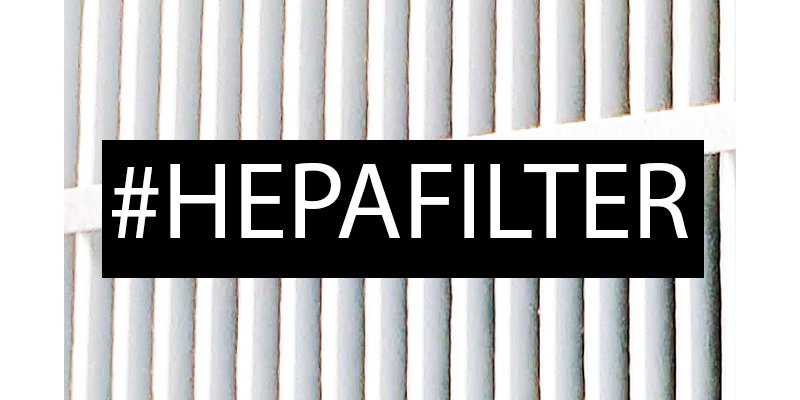
For people who suffer from any type of allergies, I would consider a HEPA filter a must. High-Efficiency Particulate Air (HEPA) filters are designed to capture particulates such as dust mites, pet dander, pollen, smoke particles, and other allergens in the air.
By removing these microscopic particles from your home’s air supply, a HEPA filter can reduce allergy symptoms significantly and improve your overall health.
The best HEPA purifier for us
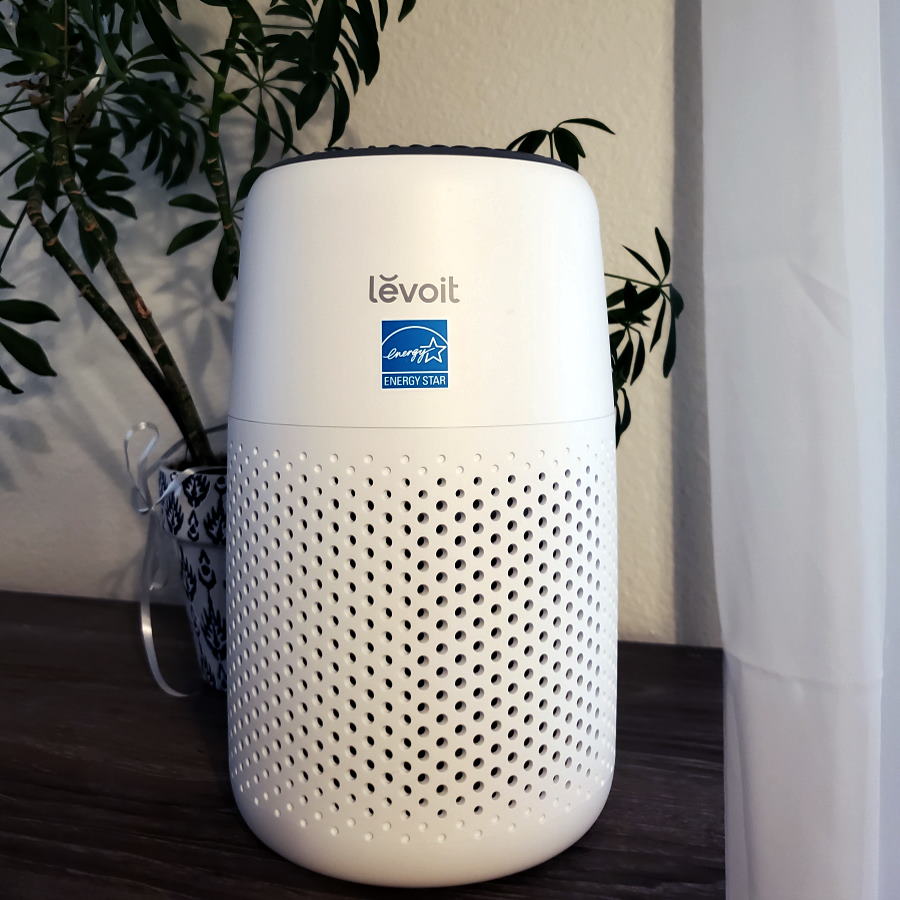
Our family is currently rocking two different HEPA filters, the Winix-5500, and the Levoit Core Mini. We use the Winix for large living spaces and the Levoit for the bedrooms. We have noticed a huge difference in our allergy symptoms.
Check out the Winix-5500 on Amazon for large spaces, and the Levoit Core Mini on Amazon for smaller rooms, and see what you think!
Avoid Juniper Berry Foods
There are certain foods that contain juniper berries, which come from the juniper tree. Many individuals with juniper allergies cannot tolerate juniper berries. Read Foods to Avoid with Juniper Allergies to learn more.
Juniper allergies FAQs
The topic of juniper allergies comes with many frequently asked questions. Here are the most asked questions, and their answers.
What is a severe juniper allergy?
A severe juniper allergy is one that can often cause a life-threatening reaction, also known as anaphylaxis. Signs and symptoms of a severe allergic reaction may include difficulty breathing, swelling of the tongue or throat, dizziness, and loss of consciousness.
What is juniper pollen?
Juniper pollen is an airborne substance that is released by plants to aid in the process of pollination. It is microscopic in size and composed of protein, carbohydrates, minerals, and other organic compounds
When is juniper pollen season?
Juniper pollen season typically lasts from April through June in most parts of the United States. Although warmer temperatures can start the juniper pollen season sooner.
What do you take for juniper allergies?
The most common medication recommended or prescribed for juniper allergies is an antihistamine. Antihistamines work by blocking histamine receptors.
What is the best allergy medicine for juniper allergies?
The best allergy medicine for juniper allergies is loratadine, commonly known as Claritin®. I am allergic to just about all trees, grasses, and weeds, Claritin has been the best option for me.
The form you have selected does not exist.

